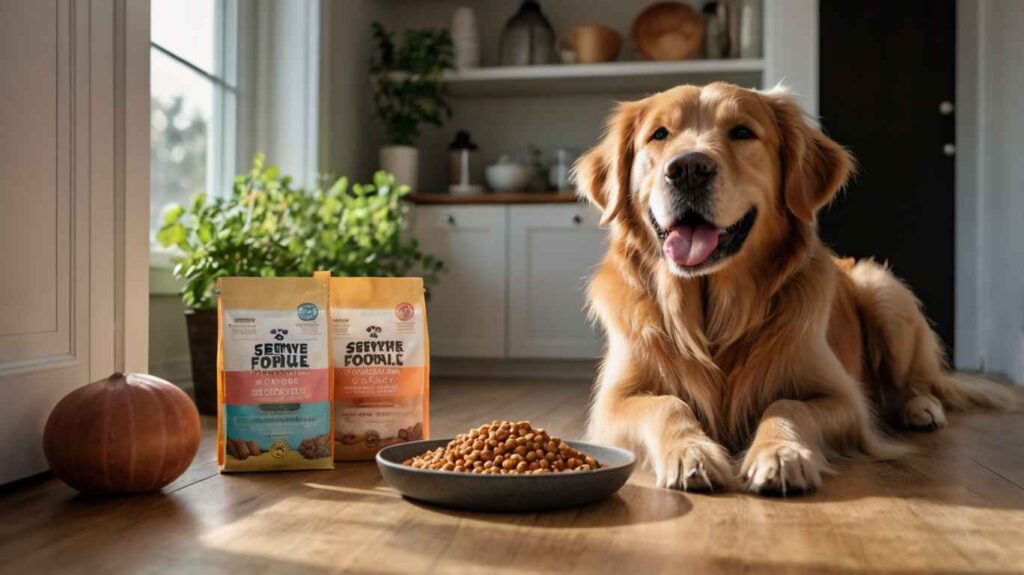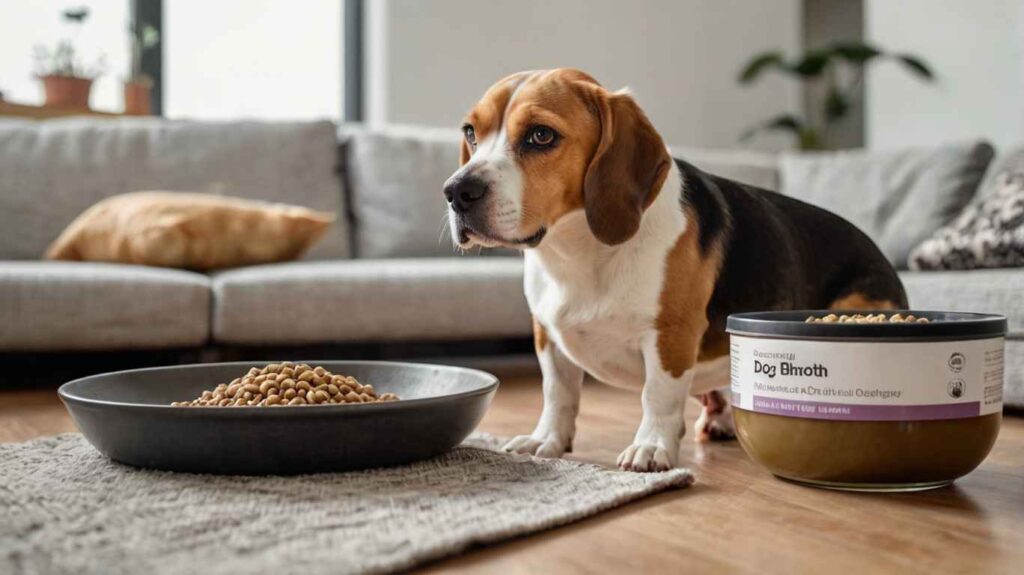A Guide to Soothing Your Dog’s Stomach: The Best Dog Food for Sensitive Stomachs
Does your dog have loose stools or pain after eating? It could be a sensitive stomach. Find out what the best dog food for sensitive stomachs to help with these problems. This guide talks about what can be causing your dog’s stomach troubles and offers ways to make them feel better.
If your dog is in a lot of pain or suffering, it’s important to take them to the vet right away. This essay is about stomach problems that happen from time to time, not emergencies.

What’s Causing Your Dog’s Sensitive Stomach?
The most important thing to look at is your dog’s diet. What are they eating? When do they eat? What kind of treats do they get?
Check the ingredients.
Turn over your dog’s food and treat bags. Look for these ingredients:
- Cereals
- Meat and animal derivatives
- Animal fats
- Sugar
- Yeasts
- Rice
- Barley
- Corn
If these ingredients are commonly used, please consider discontinuing them in your dog’s diet. These ingredients can cause problems.
The Elimination Diet
Try an elimination diet. This means you remove all protein sources except for one. This will help you find out what your dog can handle.
Pick one protein source to start with. Also, limit how many high-glycemic carbohydrates you feed your dog.
Best Meats for Sensitive Stomachs
Some meats are easier to digest than others. If you have a stomachache, what do you eat? Chicken, turkey, or fish are often excellent choices.
- Chicken and turkey are easy for the stomach to break down. They might not be as rich in nutrients as other meats, but they are gentle.
- Salmon and white fish are excellent options. They have omega-3s, which fight inflammation.
Avoid lamb, beef, and game meats like deer. These are harder to digest.
Foods to Avoid
Stay away from foods that cause inflammation. These foods will make your dog’s sensitive stomach worse.
Even if your vet suggests it, avoid rice. Dogs have a challenging time digesting carbohydrates. Their bodies don’t make much amylase, which helps break down carbs.
Do not feed your dog:
- Rice
- Wheat
- Barley
- Soy

Choosing the Right Dog Food
Pick a dog food that is easy to digest. The food must be complete. This means it has meat, organs (like liver), and bone. Do not only feed your dog chicken or turkey. They need a balanced diet.
Don’t be fooled by labels that say “sensitive stomach.” These foods often have the very ingredients that cause problems.

Other Tips for Sensitive Stomachs
If your dog’s stomach is upset, here are some other things you can try:
- Fast your dog for 48 hours. Make sure they have access to fresh water. You can add bone broth to their water to help them stay hydrated.
- Add a little fiber to their diet.
- Kefir is a natural way to improve gut health.
- Slippery elm protects the stomach by creating a coating.
- Psyllium and oregano can help with digestion.
Important: Don’t give your dog too many new things at once. Start slowly and see how they react.
When to See a Vet
Sometimes, stomach problems are a sign of something more serious. If your dog’s symptoms don’t improve, see a vet.
Conclusion: Helping Your Dog Feel Better
Both you and your dog may experience discomfort due to a sensitive stomach. By paying attention to their diet and avoiding problem ingredients, you can help them feel better. Remember to talk to your vet if you have any concerns.
